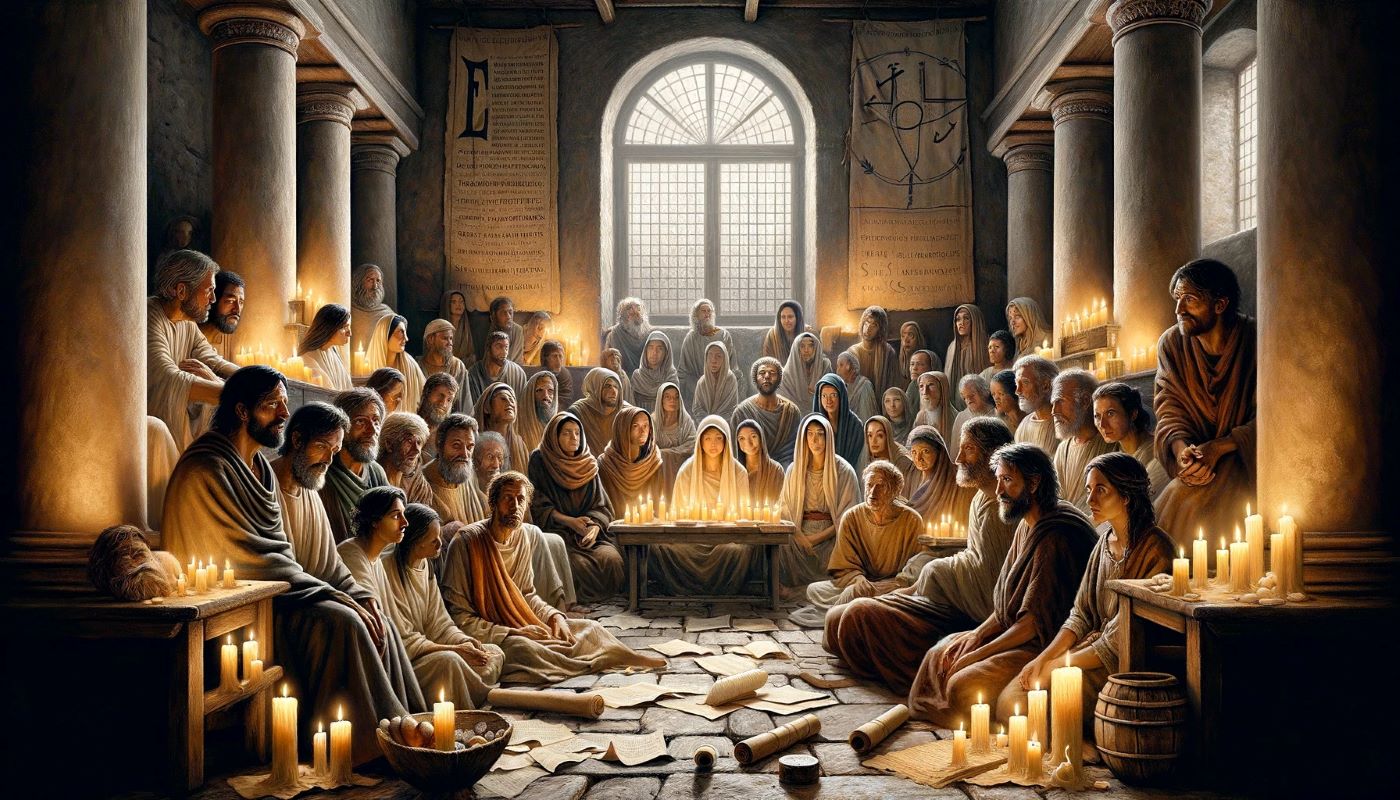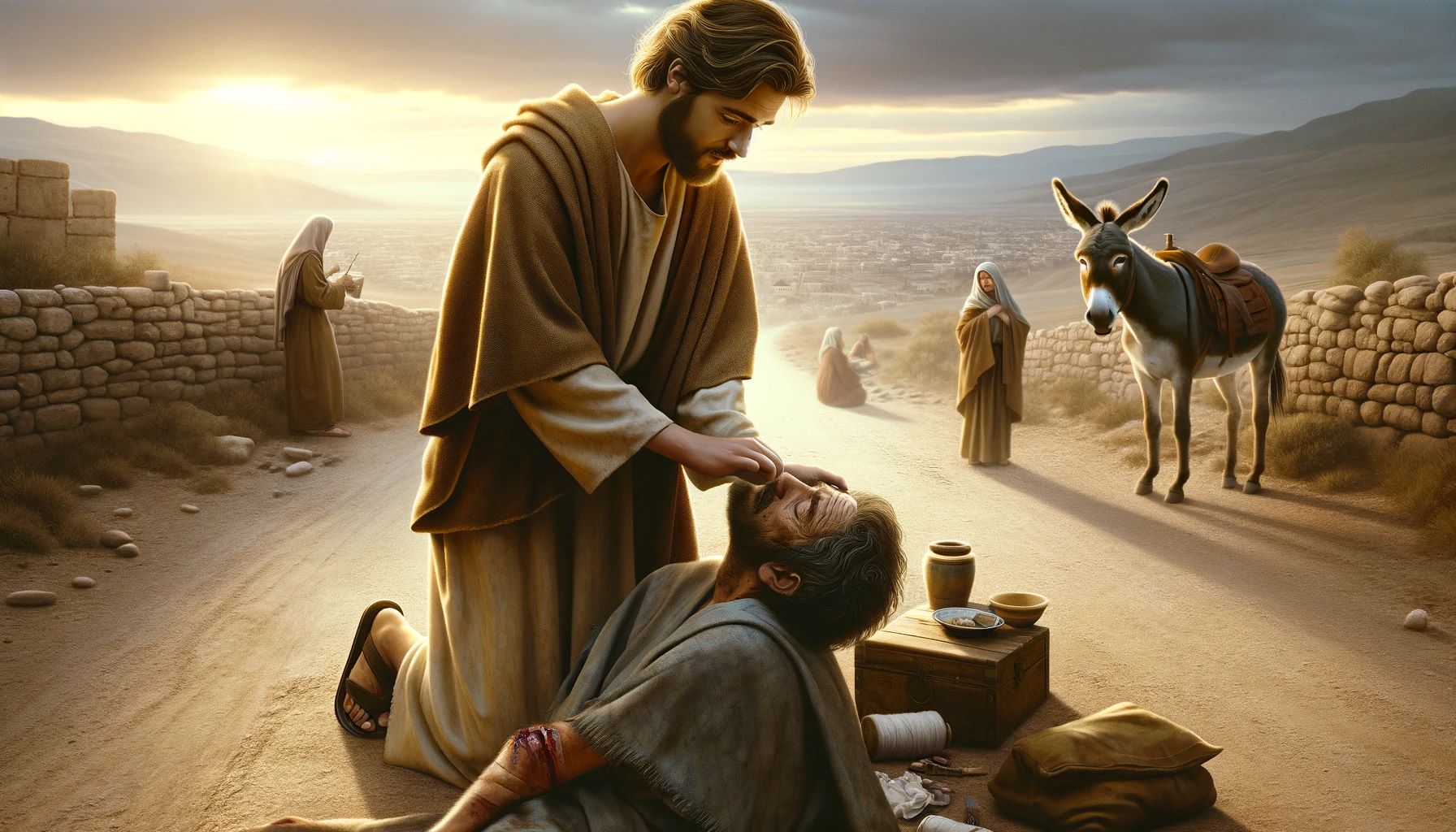Home>Theology and Spirituality>What Does It Mean That Noah Found Grace And Favor In God’s Sight


Theology and Spirituality
What Does It Mean That Noah Found Grace And Favor In God’s Sight
Published: March 7, 2024
Ericka Andersen, an editor at Christian.net, expertly merges digital strategy with content creation, focusing on faith and societal issues. Her communication skills enhance the platform's engaging narratives, fostering meaningful dialogue on belief's impact on society.
Discover the theological significance of Noah finding grace and favor in God's sight. Explore the implications for spirituality and faith in this profound biblical concept.
(Many of the links in this article redirect to a specific reviewed product. Your purchase of these products through affiliate links helps to generate commission for Christian.net, at no extra cost. Learn more)
Table of Contents
Introduction
What does it mean that Noah found grace and favor in God's sight? This question delves into the concept of grace and favor as depicted in the Bible, particularly in the story of Noah. Understanding the significance of finding grace in God's sight and how it relates to Noah's experience can provide valuable insights into the nature of God's mercy and the human-divine relationship. In this article, we will explore the biblical concept of grace, the significance of finding grace in God's sight, and the lessons we can learn from Noah's experience.
Understanding the Concept of Grace in the Bible
Grace, in the context of the Bible, refers to the unmerited favor and mercy shown by God to humanity. It is a concept deeply rooted in the Christian faith and is often described as God's love and kindness extended to people who do not deserve it. The apostle Paul, in his letters, frequently emphasizes the significance of grace as a fundamental aspect of salvation. He teaches that humans are justified by God's grace through faith in Jesus Christ, not by their own works. This underscores the idea that grace is a gift from God, freely given and not something that can be earned through human effort. The concept of grace is central to the Christian belief in the redemptive work of Jesus Christ, highlighting the compassionate and forgiving nature of God towards humanity.
Key Aspects of Grace in the Bible
- Unconditional Love: Grace embodies God's unconditional love for humanity, irrespective of their flaws and shortcomings. It reflects God's willingness to forgive and bless individuals, not based on their actions, but out of His boundless love.
- Redemption and Salvation: Grace plays a pivotal role in the Christian doctrine of redemption and salvation. It is through God's grace that believers are saved, as it is not achievable through their own merits or deeds.
- Empowerment for Righteous Living: The concept of grace also extends to the empowerment for righteous living. It is believed that God's grace enables believers to live according to His will and empowers them to overcome sin and its effects.
Understanding the concept of grace in the Bible provides a profound insight into the compassionate nature of God and His willingness to extend mercy and favor to humanity despite their imperfections. This sets the stage for comprehending the significance of finding grace in God's sight, as exemplified in the story of Noah.
The Significance of Finding Grace in God's Sight
The significance of finding grace in God's sight is profound and carries immense theological and spiritual implications. When an individual or a biblical figure is described as having found grace in God's sight, it signifies a divine recognition of their righteousness, faithfulness, and favor with God. In the case of Noah, the narrative of finding grace in God's sight highlights the exceptional nature of his character and his unwavering devotion to God amidst a corrupt and sinful world. This divine favor bestowed upon Noah serves as a testament to God's faithfulness in preserving those who walk in obedience and righteousness. It also underscores the transformative power of grace in the face of impending judgment and serves as a beacon of hope for humanity.
Key Aspects of the Significance
-
Divine Protection and Preservation: Finding grace in God's sight signifies divine protection and preservation. In the story of Noah, God's grace shielded him and his family from the impending flood, demonstrating God's commitment to safeguarding those who are faithful and obedient.
-
Instrument of Redemption: The significance of finding grace in God's sight extends to being an instrument of redemption for humanity. Noah's righteousness and favor with God positioned him as the means through which God would preserve a remnant of humanity and pave the way for the continuation of His divine plan.
-
Exemplifying God's Faithfulness: It serves as a powerful example of God's faithfulness to His promises. Despite the prevailing wickedness, God's grace towards Noah showcases His unwavering commitment to those who walk in obedience and faith, reinforcing the enduring nature of His covenant with humanity.
-
Hope and Restoration: The significance of finding grace in God's sight offers hope and the promise of restoration. It signifies that even in the midst of judgment and turmoil, God's grace can bring about renewal and the prospect of a new beginning for those who find favor in His sight.
The concept of finding grace in God's sight, as exemplified in the story of Noah, holds profound significance in illustrating the transformative power of divine favor and the enduring nature of God's faithfulness towards humanity. It serves as a poignant reminder of God's redemptive plan and His unwavering commitment to those who walk in righteousness and faith.
Exploring the Story of Noah in the Bible
The story of Noah, found in the book of Genesis, is one of the most well-known narratives in the Bible. It recounts the account of a righteous man who, amidst a world engulfed in wickedness and corruption, found favor in the eyes of God. The narrative begins with God observing the pervasive evil and violence that had consumed humanity, prompting Him to declare His intention to bring a catastrophic flood to cleanse the earth. However, in the midst of this impending judgment, Noah is described as a righteous man, blameless among the people of his time, and as one who walked faithfully with God. This distinction sets the stage for the extraordinary events that unfold in Noah's life and the profound demonstration of God's grace and favor towards him.
The narrative of Noah's story encompasses several key elements that highlight the significance of his experience of finding grace and favor in God's sight. Firstly, Noah is instructed by God to build an ark to preserve himself, his family, and a remnant of the animal kingdom from the impending deluge. This directive showcases Noah's unwavering obedience and faith in God's plan, despite the incredulity and mockery he faced from the surrounding society. It underscores the pivotal role of Noah as an instrument of God's redemptive purpose, as his obedience and favor with God positioned him to be the means through which God would preserve life on earth.
The unfolding of the flood narrative further emphasizes the divine protection and preservation afforded to Noah and his family. As the floodwaters engulf the earth, the ark becomes a symbol of refuge and salvation, shielding its occupants from the cataclysmic judgment that befalls the rest of humanity. This demonstration of God's faithfulness in safeguarding those who have found grace in His sight serves as a powerful testament to the transformative nature of divine favor amidst the backdrop of impending judgment and destruction.
Moreover, the story of Noah also encapsulates the theme of renewal and restoration. Following the subsiding of the floodwaters, God establishes a covenant with Noah, symbolized by the rainbow, promising never again to destroy all life on earth in such a manner. This covenant signifies a new beginning for humanity, characterized by God's enduring faithfulness and grace towards those who walk in righteousness and obedience. It serves as a beacon of hope and restoration, illustrating the redemptive power of God's grace in the aftermath of judgment and upheaval.
The story of Noah in the Bible, therefore, provides a rich tapestry of themes and theological significance, encapsulating the transformative power of finding grace and favor in God's sight. It serves as a profound illustration of God's faithfulness, the redemptive nature of divine favor, and the promise of renewal and restoration for those who walk faithfully with Him.
Lessons We Can Learn from Noah's Experience of Finding Grace and Favor
-
Faithfulness in Obedience: Noah's unwavering obedience and faithfulness to God's instructions despite societal ridicule and disbelief serve as a powerful lesson. It demonstrates the importance of steadfastly following God's guidance, even when it contradicts prevailing norms or seems implausible to others.
-
Divine Protection and Provision: The story of Noah illustrates God's faithfulness in protecting and providing for those who find favor in His sight. It teaches us to trust in God's provision and to seek refuge in His grace, especially during times of adversity and uncertainty.
-
The Power of Righteous Living: Noah's righteousness and favor with God positioned him as a vessel for God's redemptive plan. This highlights the transformative impact of leading a righteous life and the potential for individuals to be instruments of God's purpose when they walk faithfully with Him.
-
God's Covenant and Faithfulness: The establishment of God's covenant with Noah, symbolized by the rainbow, signifies God's enduring faithfulness and commitment to His promises. It serves as a reminder of God's unwavering love and grace towards humanity, even in the aftermath of judgment and upheaval.
-
Hope and Renewal: The narrative of Noah offers a message of hope and renewal, emphasizing the potential for a fresh start and restoration through God's grace. It encourages individuals to embrace the promise of renewal and to find hope in God's redemptive power, even in the midst of challenging circumstances.
-
Responsibility for Creation: Noah's role as the custodian of the animal kingdom within the ark underscores the responsibility entrusted to humanity for the care and preservation of God's creation. This serves as a reminder of our stewardship over the earth and the importance of fulfilling our role as caretakers of the natural world.
-
The Universality of God's Grace: The story of Noah exemplifies the universal nature of God's grace, extending beyond cultural or societal boundaries. It emphasizes that God's favor is available to all who seek righteousness and walk in obedience, transcending barriers and embracing individuals from all walks of life.
-
Perseverance in Adversity: Noah's perseverance in fulfilling God's instructions amidst the challenges of building the ark and enduring the flood serves as a testament to the strength found in unwavering faith. It inspires us to persevere in the face of adversity and to trust in God's faithfulness, knowing that His grace sustains us through trials.
-
The Redemptive Power of Grace: The story of Noah ultimately showcases the redemptive power of God's grace, offering a profound illustration of God's mercy and the potential for renewal through His favor. It reminds us of the transformative impact of God's grace in bringing about redemption and restoration.
-
Walking in Covenant Relationship: Noah's experience highlights the significance of walking in a covenant relationship with God. It underscores the blessings and protection that come from aligning our lives with God's will and emphasizes the rewards of faithfully abiding in His grace.
The story of Noah's experience of finding grace and favor in God's sight provides a wealth of valuable lessons that resonate across generations, offering timeless insights into the nature of God's grace, the transformative power of faith, and the enduring hope found in His redemptive plan.














